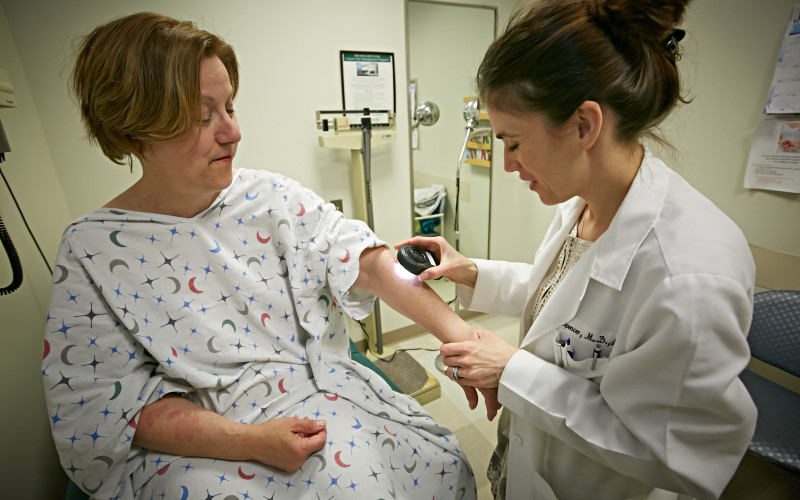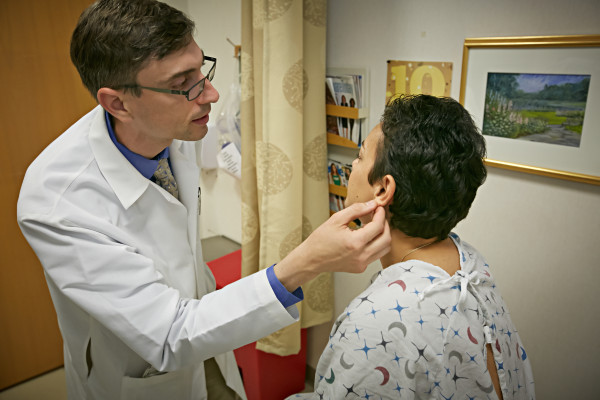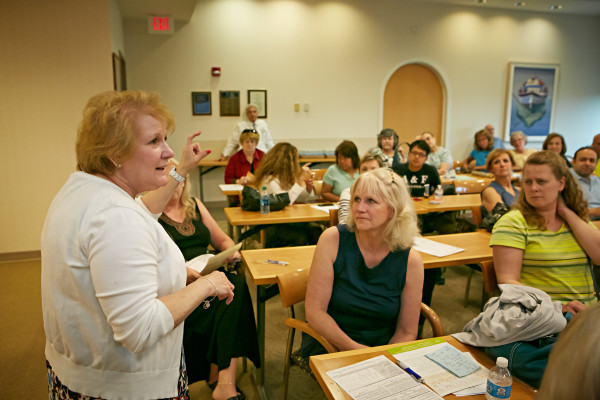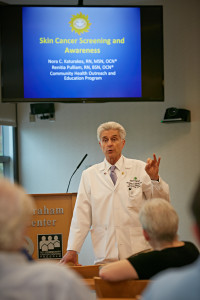More than 200 turn out for free skin cancer screenings

Each year, more than 61,000 people in the United States are diagnosed with skin cancer, according to the Centers for Disease Control and Prevention. Richard Watson was intent on learning if he would be one of them.
Watson, 61, of Newark takes medication for arthritis that makes his skin especially sensitive to the sun. And his father developed skin cancer on his ears.
“I crab and fish and hunt, so I am in the sun all the time,” Watson said. “Even with sunblock, even with a hat, it’s hard to avoid getting a sunburn.”
He signed up for a free skin screening on May 13 at the Helen F. Graham Cancer Center & Research Institute at Christiana Care.
“I have these little marks on my face that I’m worried about,” he said.
Like 41.4 percent of white adults in Delaware, he has suffered a sunburn within the past year. The CDC also reports that new melanoma diagnoses in 2002-2006 were 23 percent higher in Delaware than the national average.

For the past 24 years, Christiana Care and the Academy of Dermatology have partnered to offer free screenings to help people get diagnosed early, when melanoma is highly curable. The events also teach participants about ways to prevent skin cancer, such as applying liberal amounts of sunscreen once every two hours and avoiding tanning beds.
During the two-day event, 214 people were screened, with 96 referred for a follow-up visit to further examine a suspicious spot on the skin. Outreach workers also connected patients who don’t have insurance with health care resources for follow-up care.
One attendee wanted to know if wearing sunglasses helps to prevent skin cancer. No, it doesn’t. But sunglasses do offer other benefits.
“You have an increased risk of cataracts if you don’t wear UV-protected sunglasses,” explained Nora Katurakes, RN, MSN, manager, Community Health Outreach and Education at the Graham Cancer Center.

Joann Sorbello of Newark wanted to get a mole on her face examined.
“I grew up on a farm, and we worked outside in the sun for hours and hours,” said Sorbello, 45. “I am here for peace of mind.”
Patricia Chakonas, 58, of Wilmington, fell asleep in the sun when she was 12 and suffered a severe burn. In recent years, she has applied sunscreen to her skin to avoid burns.

“The first thing I am going to do when I get home is check the expiration date on the bottle,” she said. “Until tonight, I did not know that sunscreen loses its effectiveness over time.”
Cathleen Roberts Harris, 53, of Bear said she often works outdoors in her garden and will make sunscreen part of her routine.
“As an African-American, I want everyone to know that people of color get skin cancer, too,” she said.
Members of the Delaware Academy of Dermatology volunteered their services: Michele Compton, PA-C; Matthew Hanson, M.D.; Dawn Hirokawa, M.D.; Helen Mashek, M.D.; Eric Oliet, M.D.; Peter Panzer, M.D.; Scott Panzer, M.D.; Lori Spencer, M.D.; Cynthia Webster, M.D.; and Nicole Wotus-Silvestri, PA-C.
Volunteers also included members of the Delaware Diamond Chapter of the Oncology Nursing Society and students from Delaware Technical Community College.